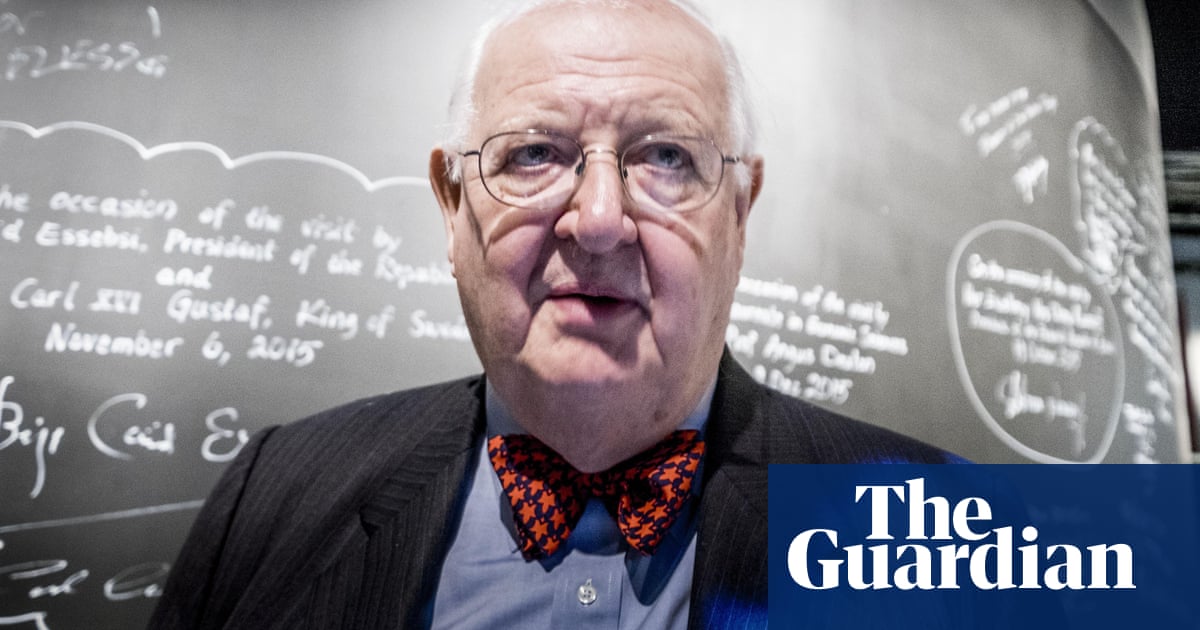
If you remain confident that the fight against doping in sport can be won, then please accept my congratulations. You are a member of an increasingly exclusive club. “My optimism has not improved,” Dick Pound, the former president of the World Anti-Doping Agency, tells me. “There is more organised crime in the system. All sorts of corruption that didn’t used to exist. And states and people with very deep pockets who are prepared, if necessary, to outspend the system and bankrupt it.”
Richard Ings, the former head of the Australian Anti-Doping Agency, is also blunt. “The reality is that anti-doping systems continue to be ineffective at reducing doping in sport,” he says.
Then there’s the top coach who asks why sprinters aren’t tested more often for EPO. “Its use is rampant in power-speed sports, yet they mostly only test for it on endurance athletes,” he insists. Incidentally, he also reckons that with a £5m budget to pay supergrasses and informers he could catch 10 times more cheats than the authorities. He’s probably right.
On Wada’s website, it insists that its “vision” is for “a world where all athletes can compete in a doping free environment”. It is little more than a tantalising mirage.Wada also stresses its scientific work and commitment to transparency. Yet its response after Chris Froome’s salbutamol case was closed was hardly a shining example of either.
In a short statement it explained its decision to clear the Team Sky rider - who was found to have had double the permitted levels of salbutamol in his urine after stage 18 of the Vuelta a España – because of evidence that in “rare cases” an athlete’s urine could test above the allowed limits even with permitted doses.
The fact that Froome was ill and had taken salbutamol at varying doses over weeks of high-intensity competition was mentioned. Yet we still don’t exactly know what Wada means by “rare”. Or why, if it is so easy to stray so far above the limit, there are not hundreds of other similar cases. And, in an absence of a reasoned decision, we also must take Wada’s word for the rigour of their unpublished scientific evidence.
And it is the science bit – to borrow from Jennifer Aniston – that could have far reaching ramifications for anti-doping.
To put it simply: there are certain substances, such as steroids and human growth hormone, where if the authorities find anything the athlete is toast. And a large number of others where there are arbitrary limits, based on what Wada decides the science says. But if the salbutamol limits are unenforceable, then you can bet your bottom dollar that lawyers will ask whether other substances are too.
Remember it was only two years ago that Wada also partially backtracked over meldonium, announcing a partial amnesty for those who tested for it in low levels in the three months after it was banned. Meanwhile, the Irish 200m sprinter Steven Colvert mounted a serious challenge to the EPO test until he ran out of money. Imagine what would have happened if he was successful.
Dr Robin Parisotto, an Australian sports physician whose team developed the first EPO blood test in 2000, is certainly concerned. “It is quite astonishing that Wada shot itself in the foot when it banned meldonium and now they have put a bullet in the other one with salbutamol,” he says. “You have to ask whether they are fully informed about every drug on the banned list.”
Parisotto, like many scientists, would like to see Wada’s banned list simplified because, in his view, it contains “far too many drugs that have never been proven to enhance performance”. As well as the rules for TUEs made much tougher, and global centres of excellence to help improve tests for EPO, human growth hormone and steroids.
I like and admire many people inside anti-doping and they rightly lament how poorly they are funded. Compared to the mounts of money sloshing around elite sport, Wada’s budget of $32m (around £24m) a year is miniscule. If roughly 10% of elite athletes are doping, which is Pound’s best guess, but around 1% of tests annually come up positive, then there is a whopping great disconnect. And governments – who provide half of Wada’s money, with the International Olympic Committee making up the rest – are entitled to ask what are we getting in return?
After all, it was not Wada that revealed state-sponsored doping in Russia but journalists, even though the whistleblower Vitaly Stepanov had told the agency about the problems in Russia back in 2010. Who has done more to reveal the problems with doping in Kenya? Again, journalists.
Things are improving in some areas, but there is not nearly enough intelligence work to take down drug suppliers. Not nearly enough resources to carry out similar investigations seen in Russia into other countries. And, for all the flaws in testing, not enough blood and urine tests for HGH and EPO. Wada’s close relationship with the IOC certainly raises questions too. When I spoke to Travis Tygart, the head of the US Anti-Doping Agency last month, he believed that Wada was “doomed to fail – unless it has pretty significant changes that makes it free from the conflict of interest and those who have an interest not to promote clean sport.” A truly independent Wada would be welcome. Seeing it live up to its ambitions even more so. The Guardian Sport












